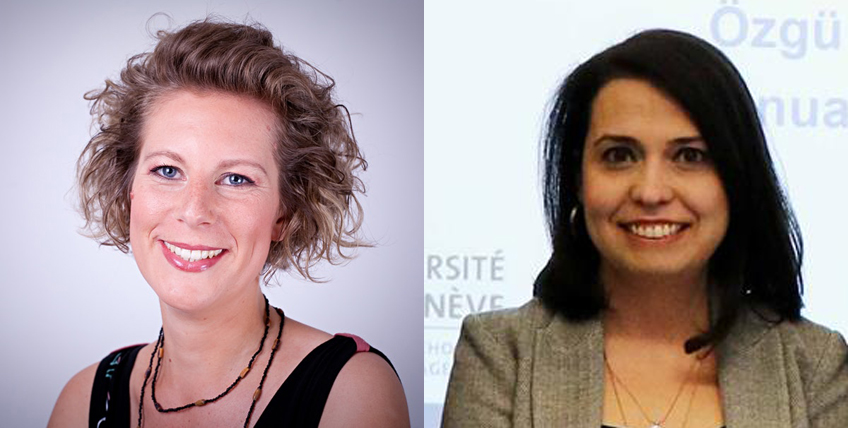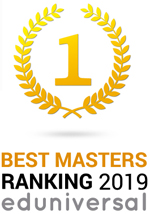Facilitating Cross-Sector Collaboration: When (Well-Intended) Help May Backfire
Intermediaries can play an important role in facilitating complex forms of collaboration. For example, they may assist cross-sector partnerships in which businesses, governments, and civil-society organizations jointly address a pressing societal challenge, such as climate change, social exclusion, or an epidemic. Rather than representing a specific sector’s interests and taking on a regular partner’s decision making and implementation role, the role of the intermediary is to facilitate the collaboration process and nurture the collaborative relationships. In this respect, prior literature helps explain how and under which conditions such intermediaries strengthen cross-sector collaboration. For example, by connecting disconnected partners, they may help enlarge the collaboration’s scope. Moreover, by using incentives that motivate cooperative behavior, and by mediating between the partners’ diverse opinions and worldviews, they may help coordinate the partners’ interactions and enhance the quality of the partners’ relationships.

November, 09 2020 | Lea Stadtler & Özgü Karakulak
And while extant literature focuses on the potential strengthening effects, when studying partnerships in global health, we discovered that—albeit with good intentions—some intermediaries ended up weakening the collaboration they were set up to support. These observations encouraged us to develop a deeper analysis to understand the crossroad that leads some intermediaries to weaken and others to continue to strengthen the collaboration. We thus endeavored to identify when, how, and why intermediaries may end up causing additional problems for a collaboration, and exploring how such a development can be avoided. Related insights are important for understanding cross-sector collaboration dynamics and exposing the risks and limitations of using intermediaries (or broker organizations as we call them in the article) to facilitate collaboration.
To address this objective, we conducted a comprehensive comparative case study of four global health partnerships for which we tracked the interplay between the partners and the intermediary organizations over a timeframe of about 20 years. To this end, we collected a database of about 260 documents and 38 interviews and, based on an inductive coding approach, distilled critical patterns from our analysis. Specifically, all four case contexts had in common that, after about five years of successful partnership implementation, the partners started facing implementation-related challenges. In two of the cases, the intermediaries sought to help the partners by taking on implementation tasks and making more unilateral decisions over time. At first sight, this unilateral tackling of the collaboration’s challenges might have enhanced response efficiency. However, in our study, the intermediaries were trusted for their neutrality rather than for their track record or proven capacity to implement and decide. Most importantly, they were not set up to act as a partner organization, or to replace the existing ones, especially when it came to working on the ground and addressing systemic implementation challenges unilaterally.
Rather, by stepping in, they buffered the urgency for the partners to address the challenges that emerged at the collaboration’s core and, as such, to adapt and harness the partners’ complementary experience, expertise, networks, infrastructure, and shared ownership. This buffering trajectory led to the collaboration’s weakening by expanding the intermediaries’ role at the expense of the collaborative scope and, in view of the emerging conflicts, the intermediaries’ capacity constraints, and competition for funding, tended to hamper effective implementation. In the other two cases, the intermediaries escalated the addressing of the implementation challenges and the need for adaptation back to the partners. They did so, for example, by alerting the partners, by fostering the engagement of respective partner committees, and by promoting inclusive organizing approaches for the partners to address the emerging challenges. In these cases, such escalating rather than buffering of challenges allowed the intermediaries to maintain their facilitation role and strengthen the collaboration.
We integrate these findings into a framework that draws attention to the critical junctures requiring intermediaries’ escalating rather than buffering role. On this basis, our study insights contribute to the theory of cross-sector collaboration in public management in two ways. First, we offer a more nuanced view on intermediaries and their activities that expands the focus on their potential collaborative strengthening effects by exposing the risk of when, why, and how they may end up weakening the collaboration. When in our study related to a point at which initial health results needed to be scaled up, yet implementation challenges exposed limitations of the collaboration. At this point, the intermediaries wanted to help the partners in line with the collaboration goals and buffered emerging problems and, therefore, the collaboration’s strategic renewal (i.e. the why). With respect to the how, we identify two dimensions, that is, a reduction of the collaborative scope as collaborative tasks and decisions were replaced with unilateral ones, and a harming of the intermediary-partner relationships as the intermediaries’ role drift triggered conflicts that distracted from the collaborative work.
Second, by unpacking the weakening and strengthening trajectories, our study helps elucidate the tensions inherent in the intermediaries’ position, the line between the intermediary and the partner roles, and the positive role that intermediaries’ escalating of challenges can play to sustain collaborations at times. These insights, in turn, open up multiple avenues for future research. We thus invite scholars to deepen this analysis by acknowledging the boundaries and potential detrimental effects of collaboration facilitators and by exposing their role in constructively escalating, rather than smoothing, strategic tensions. Such research may identify, for example, how and why specific intermediary characteristics may enhance the risk of weakening the collaboration. In addition, while our study setting suggested unintended weakening effects, when and how do intermediaries intentionally weaken a collaboration, for example, in pursuit of increased power or recognition? Finally, how can an intermediary’s weakening trajectory be successfully reversed?
In terms of practical implications, our study encourages managers in intermediary organizations to ensure that the roles and accountabilities in collaborations are clarified and the intermediary and partner roles delineated. Moreover, before addressing operational or partnership implementation-related challenges beyond their facilitator role, they should reflect on whether stepping in will be constructive or whether this could allow the partners to avoid a required strategic realignment. In turn, our findings alert partner organizations to the risk of delegating strategic problem-solving tasks to intermediaries, and encourage them to assume responsibility for strategically realigning their collaboration as it evolves.
Overall, understanding intermediaries’ role in and the sustainability of cross-sector collaboration is important for tackling societal challenges that neither public, nor private, nor civil-society sectors can solve on their own. Our analysis provides a starting point for expanding the study of intermediaries in terms of their potential to weaken cross-sector collaboration—in our study occurring at times of turbulence and due to a desire to step in, but ultimately usurping the partners’ responsibilities.
Lea Stadtler is Associate Professor of Strategic Management at the Grenoble Ecole de Management, France, and also contributes to the PPP Center, University of Geneva, Switzerland. In her research, Lea explores questions related to the collaborative addressing of societal grand challenges. Her papers have been published in journals such as Organization Studies, Journal of Business Ethics, and Business & Society, and she has received three international research awards. Lea is Associate Editor for Business & Society.
Özgü Karakulak is currently an Academic Visitor at Saïd Business School, University of Oxford. She holds a PhD from the Geneva School of Economics and Management (GSEM), University of Geneva. Her research focuses on social partnerships and organizational and institutional change.






















It is mandatory to be registered to comment
Click here to access.
Click here to register and receive our newsletter.